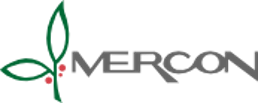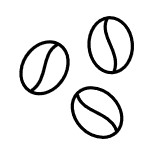The AMERRA ESG Path
Our ESG Policy and Management System defines a set of principles, procedures, and objectives that ensure we are investing responsibly. From sourcing to exit, all opportunities are analyzed following the IFC Performance Standards.
1
Screening
Desk review process to identify key risks, impacts and opportunities and potential conflicts to AMERRA’s ESG Policy.
2
Due Diligence and Engagement
AMERRA establishes close connections with clients to review and assess their operations from an ESG perspective. The appraisal includes context/sector specific questionnaires, documentation requests, site visits, conversations with management, and engagement of external advisors. ESG Action Plans are created to promote change and best practices.
3
Investment Decision
The results of the ESG appraisal are formally documented and included in the investment proposal to enable the Investment Committee (IC) to make an informed investment decision that takes ESG factors into account.
6
Exit
Engage with prospective buyers on ESG by preparing relevant documentation and evidence improved ESG performance and improvements.
5
Monitoring and Reporting
ESG performance is evaluated and monitored on a continuous basis, including status and the implementation of the ESG Action Plans.
4
Investment Agreement
Ensure agreements contain appropriate ESG representations, warranties, and covenants requiring that the investments are in compliance with local environmental, health, safety, and social requirements. ESG Action plans are included and formalized in the agreements.

Case Studies

Sustainability Strategy
Private Equity
AVRAMAR is a vertically integrated aquaculture company resulting from the integration of Andromeda Group, Nireus, Selonda, and Perseus – four pioneers and leading aquaculture companies in the Mediterranean for decades. As a group, AVRAMAR's mission is to bring the Mediterranean to tables around the world by offering better fish for better, healthier lives.
As the integration process evolved since the closing of the merger in November 2019, so did AVRAMAR's focus and efforts to embed sustainability as a pillar into its business strategy. Significant steps geared toward becoming a thought-leader in the sustainability and Mediterranean aquaculture sector include:
- Creation of a Sustainability Committee comprised of Senior Management roles to strategically guide and oversee the evolution of the company’s sustainability strategy.
- Creation of Speak Up – a grievance mechanism for stakeholders to confidentially report any conduct known or believed to violate AVRAMAR's policies, guidelines, or applicable law.
- Formalization of policies that include the Code of Conduct, Supplier’s Code of Conduct, and Human Rights.
- In 2022, AVRAMAR hired an external sustainability consulting firm to support the formalization of its sustainability strategy. The foundation of the ongoing process is the development of a Materiality Assessment – an inclusive process aimed at engaging with stakeholders to identify the most relevant sustainability issues. With the participation of more than 250 internal and external stakeholders in the process, AVRAMAR identified and prioritized a total of 23 and 15 material issues, respectively.

250+
Internal and External Stakeholders involved in the materiality process
23
Material issues identified
15
Material issues prioritized by AVRAMAR's leadership group.

Sustainable Finance / Sustainability-Linked Loans
Private Equity
In 2019, Mercon closed the first Sustainability-Linked Credit Facility in the commodity sector in the U.S. and the first coffee-only sustainability facility globally. The facility’s pricing is linked to LIFT – Mercon’s sustainability program.
The LIFT program focuses on training and providing technical assistance to farmers on a variety of topics, including farm management, climate-smart agriculture, strong socio-environmental practices, certifications, renovation, access to credit, financial risk management, and community development. The program, first implemented in Nicaragua and then rolled out to Guatemala, Honduras, Brazil, and Vietnam, supports more than 4,500 farmers and 1.0 million 60-kg bags of sustainable coffee.
Mercon measures the program's impact via an index that covers the economic, social, and environmental performances at the farm level and is the foundation for pricing the sustainability-linked loan. In brief, the facility could be either discounted or have a premium based on the achievement of three LIFT sustainability performance indicators. Discounts obtained by meeting the targets are reinvested into LIFT or Mercon’s foundation – Seeds for Progress. On the other hand, failure to meet the indicators result in premiums used by Rabobank, the International Finance Corporation, and the Inter-American Investment Corporation in their sustainability programs.
Mercon is also a member of the UN Global Compact and reports annually following the GRI Sustainability Reporting Standards (GRI Standards).

70k
hectares
Planted area covered by LIFT in Nicaragua, Guatemala, Honduras, Brazil, and Vietnam.
4.5k
farmers
Supported by the program
Memberships
